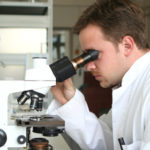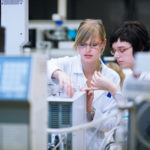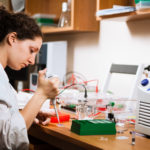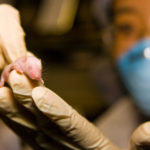
Study looks at why some patients remain cancer free
Eminent philanthropist and three times cancer survivor Dr James Hull has joined forces with six universities to investigate why cancer returns in some people and not others. Focusing on people who have had successful treatment of advanced cancer and in whom the cancer has not reoccurred for at least five years, Swansea University says its … Continue reading Study looks at why some patients remain cancer free

Oral steroids not effective for most children with glue ear
A new study by researchers at Cardiff University and the University of Oxford shows a one week course of oral steroid tablets does not result in large benefits for most two to eight year olds who have had glue ear with hearing loss for at least three months. Glue ear, otherwise known as otitis media … Continue reading Oral steroids not effective for most children with glue ear

New database to reduce childhood mortality announced
A new National Child Mortality Database (NCMD) is being developed at the University of Bristol that aims to reduce premature mortality by analysing data on all deaths in children in England. Around four thousand children and adolescents die every year before their nineteenth birthday in England, according to the Office for National Statistics. The UK … Continue reading New database to reduce childhood mortality announced

New methodology to study pig T cell responses to flu
A team of researchers, led by Cardiff University, has developed methodology for closely studying pig T cell responses to influenza for the first time, giving them a new way of developing vaccines that can be effective against all strains of flu in pigs, birds and humans. Cardiff University reports Professor Andrew Sewell, lead author of … Continue reading New methodology to study pig T cell responses to flu

For bigger brains less is more
The superior size and complexity of the human brain compared to other mammals may actually originate from fewer initial starting materials, new research has suggested. A team from the University of Oxford and Cardiff University, who reported on the story, have used mathematical models to re-enact the complex process of brain development that occurs as … Continue reading For bigger brains less is more

Enigmatic gene crucial to healthy brain development
New research has shown how an unusual gene is needed for brain development in young mice. Since the human genome was first sequenced in 2001, scientists have puzzled over swathes of DNA that despite apparently lacking function are made into ribonucleic acid (RNA) by the cell. The University of Bath reports its scientists, along with … Continue reading Enigmatic gene crucial to healthy brain development

Machine keeps liver alive outside the body pre-transplant
Scientists have said a machine which keeps a liver “alive” outside the body for up to twenty four hours before a transplant could have a “transformative effect” on organ waiting lists. ITV reports the normothermic machine perfusion process maintains the liver at body temperature, supplying it with oxygenated blood, medication and nutrients, similar to someone … Continue reading Machine keeps liver alive outside the body pre-transplant

Funding moves 3D biology network into new dimension
An innovative research network led by the University of Liverpool has secured funding as part of a new £3m joint technology initiative announced today. The University of Liverpool reports 3DBioNet brings together academic and industry experts from different disciplines to examine cells growing in three dimensions. Scientists have traditionally grown cells on flat surfaces but … Continue reading Funding moves 3D biology network into new dimension

Study challenges evidence for proactive reading brain
A scientific team led by the Max Planck Institute for Psycholinguistics in the Netherlands, supported by scientists from the University of Bristol, has demonstrated that the predictive function of the human language system may operate differently than the field has come to believe in the last decade. Dr Mante Nieuwland, Cognitive Neuroscientist at the Max … Continue reading Study challenges evidence for proactive reading brain

Kidney age, not kidney disease
There should be a rethink in how doctors talk to some patients with reduced kidney health, replacing the term chronic kidney disease (CKD) with different bands of kidney age, according to a group of experts writing in the Canadian Medical Association Journal. The University of Bristol reports its researchers, along with colleagues from the Universities … Continue reading Kidney age, not kidney disease








